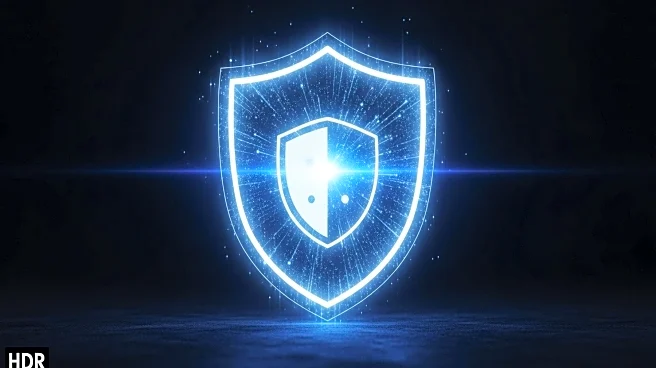What's Happening?
Cloudflare has announced the successful mitigation of a record-breaking Distributed Denial of Service (DDoS) attack, which reached a peak of 22.2 terabits per second (Tbps). This attack is nearly twice as large as a previous attack reported earlier this month. The attack lasted only 40 seconds but involved 10.6 billion packets per second (Bpps), showcasing the scale and intensity of the threat. Cloudflare's autonomous systems were able to block the attack, although details about its origin and execution have not yet been disclosed. The company is preparing a detailed report on the incident, which will include insights into the attack's nature and mitigation strategies.
Why It's Important?
The ability to mitigate such large-scale DDoS attacks is crucial for internet security and stability, as Cloudflare protects a significant portion of online infrastructure. These attacks can disrupt services, leading to financial losses and reputational damage for affected companies. Cloudflare's success in handling this attack demonstrates the effectiveness of its security measures and highlights the ongoing threat posed by cyberattacks. The incident underscores the need for robust cybersecurity strategies and the importance of investing in advanced mitigation technologies.
What's Next?
Cloudflare is expected to release a comprehensive report detailing the attack and its mitigation strategies. This report will likely provide valuable insights for other companies facing similar threats. The cybersecurity community may use this information to develop improved defense mechanisms against DDoS attacks. Additionally, there may be increased collaboration between industry leaders to enhance collective security measures.
Beyond the Headlines
The incident raises questions about the motivations behind such large-scale attacks and the potential for future threats. It also highlights the ethical considerations of cybersecurity, including the balance between privacy and protection. As cyber threats evolve, companies must continuously adapt their strategies to safeguard against increasingly sophisticated attacks.










